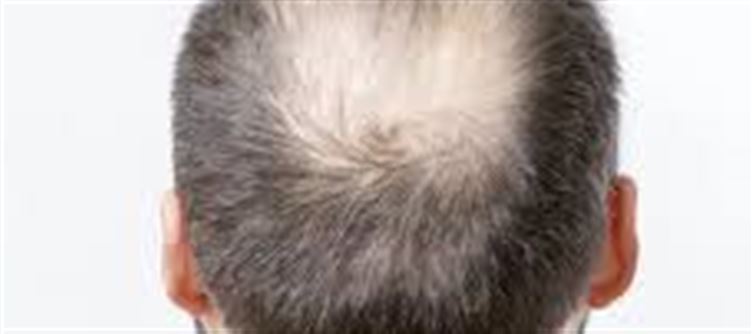
Sudden hair fall, thinning strands, and even visible scalp patches can be alarming. While stress, genetics, and pollution are often blamed, experts reveal that the real cause could be much simpler—a deficiency of zinc, an essential mineral that plays a critical role in hair health.
Dr. Eric Berg, a well-known American health expert, explains how zinc deficiency silently damages your hair and what you can do to fix it before bald patches start appearing.
Here are the key takeaways you need to know:
1. Why Zinc Is Called the “Hair Mineral”
Zinc isn’t just another nutrient—it’s directly linked to hair growth.
- Strengthens hair follicles and roots.
- Supports the production of growth hormones that regulate hair cycles.
- Helps in the repair of damaged tissues on the scalp.
Without enough zinc, your hair becomes weak, brittle, and prone to falling.
2. How Zinc Deficiency Shows Up in Your Hair
Dr. Berg highlights that around 30% of people suffer from zinc deficiency, often without realizing it. Common signs include:
- Sudden, excessive hair fall
- Hair thinning across the scalp
- Slower growth of new strands
- Premature graying in some cases
If left unchecked, this deficiency can eventually lead to bald patches.
3. Why Modern Lifestyles Make Zinc Deficiency Common
Processed foods and high-carbohydrate diets are the biggest culprits.
- Refined carbs like white bread, pastries, and sugary snacks interfere with zinc absorption.
- Packaged and junk foods often lack micronutrients, making your diet calorie-rich but nutrient-poor.
- Over time, your body struggles to maintain healthy zinc levels.
Simply put: the more junk you eat, the weaker your hair becomes.
4. Zinc-Rich Foods to Add to Your Plate Today
The good news? Preventing hair thinning can be as simple as changing your diet.
Here are some zinc-packed foods to include:
- 🥜 Pumpkin seeds, cashews, almonds – quick snack options.
- 🥚 Eggs – especially the yolk.
- 🐟 Seafood like oysters, fish, and crab – among the richest sources.
- 🌿 Spinach and pulses – plant-based options for vegetarians.
- 🥘 Chickpeas and lentils – protein and zinc in one.
A balanced diet that includes these foods can help your hair regain its strength naturally.
5. When to Consider Supplements
If your hair fall is severe or if dietary changes don’t help, Dr. Berg suggests zinc supplements—but only after consulting a doctor.
- Supplements should be taken under medical guidance, as too much zinc can cause side effects like nausea or copper deficiency.
- Most people benefit from getting zinc through natural food sources.
6. Zinc: Not Just for Hair, But Overall Health
Zinc plays a role in more than just hair care. It also:
- Boosts immunity and helps fight infections.
- Supports skin repair and wound healing.
- Enhances reproductive health in both men and women.
- Maintains taste and smell sensitivity.
So when you eat for your hair, you’re also fueling your whole body.
7. lifestyle Tweaks That Boost Absorption
Even if you eat zinc-rich foods, poor lifestyle choices can block absorption.
- Cut down on refined carbs and sugary foods.
- Avoid overconsumption of alcohol, which depletes zinc.
- Pair zinc foods with vitamin C-rich foods (like oranges) for better absorption.
Small daily habits can make a huge difference in how your body uses nutrients.
Final Word: Eat Smart, Save Your Hair
Hair thinning is not always about age or genetics—sometimes it’s just about what’s missing from your plate. By prioritizing zinc-rich foods, avoiding processed junk, and maintaining a balanced lifestyle, you can give your hair the nourishment it needs to stay thick, shiny, and healthy.
Disclaimer:
The views and opinions expressed in this article are those of the author and do not necessarily reflect the official policy or position of any agency, organization, employer, or company. All information provided is for general informational purposes only. While every effort has been made to ensure accuracy, we make no representations or warranties of any kind, express or implied, about the completeness, reliability, or suitability of the information contained herein. Readers are advised to verify facts and seek professional advice where necessary. Any reliance placed on such information is strictly at the reader’s own risk.
.jpg)




 click and follow Indiaherald WhatsApp channel
click and follow Indiaherald WhatsApp channel